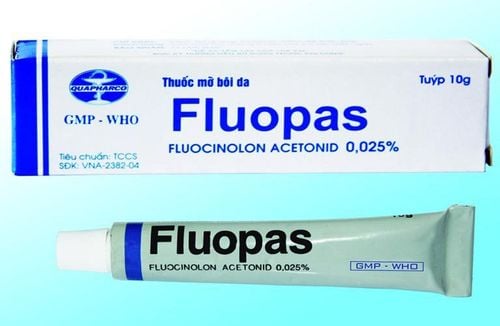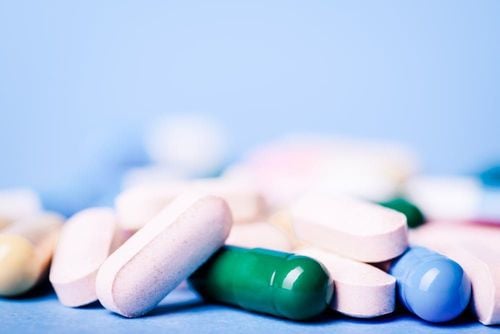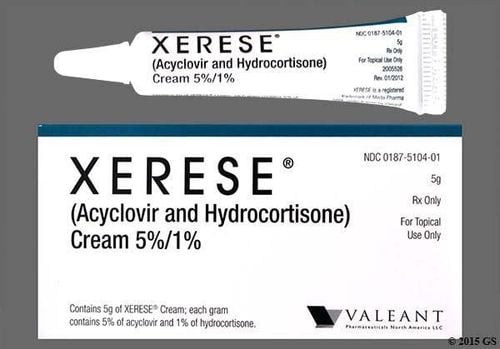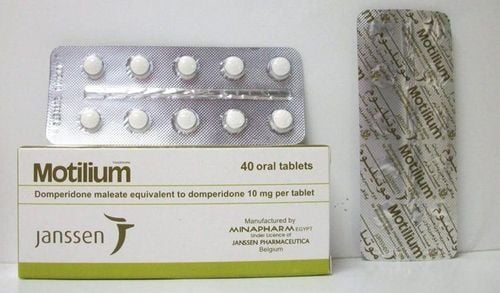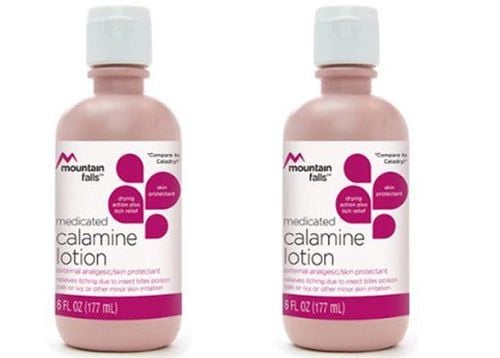This is an automatically translated article.
One of the effective ways to treat itching is to use creams, lotions or gels that soothe and cool the skin. Over-the-counter corticosteroid creams can temporarily relieve itching that accompanies red, inflamed skin. Here are some notes when using topical medications to treat itching.
1. Designation
Topical Anti-itch (Hydrocortisone) 1% cream is used to treat many skin problems, for example:
Insect bites Oak/ivy poisoning Eczema Atopic Dermatitis Rash Itching female external genitalia anal itching. Hydrocortisone is a mild corticosteroid that helps reduce swelling, itching, and redness that can occur in these conditions. There are many different hydrocortisone products on the market, both prescription and over-the-counter. You can consult your doctor or pharmacist to choose the most suitable product.
2. User Manual
This medication is for external use only, but not on the face or underarms unless directed by your doctor. Some products are used on the scalp to treat specific conditions. Following the instructions on the packaging will help you use these products correctly.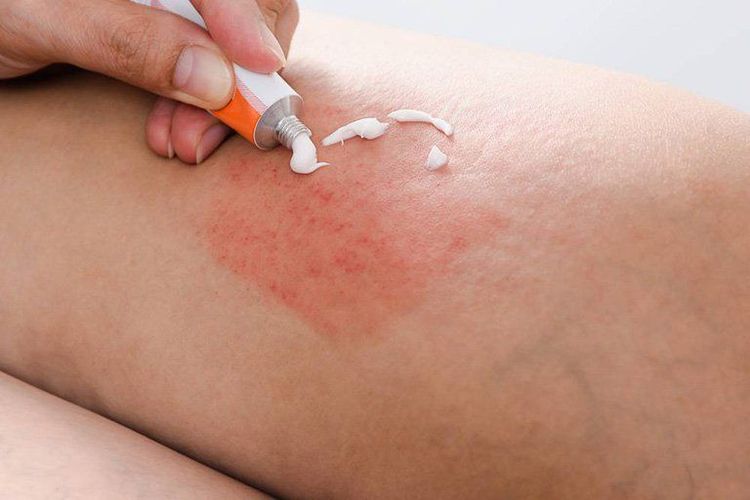
Người bệnh cần dùng thuốc theo đúng hướng dẫn của bác sĩ
First, it is necessary to wash and dry hands before use. Then clean and dry the affected area.
If you are using a lotion for itchy skin, shake well just before use. If you are using an aerosol, check the outside of the package to see if it needs to be shaken before each use. Apply a small amount to the affected area and gently massage in, up to 4 times a day, or as directed by your doctor or on the product packaging. The dose and duration of treatment depend on the condition you have. Do not bandage, cover, or wrap the itchy area unless directed to do so by your doctor. If it must be used in or near the diaper area on an infant, do not wear diapers or tight pants while topical antifungal medication is being applied.
After applying the medication, wash your hands unless your hands are the area to be treated. Avoid getting the medicine in your eyes, nose or mouth. If medication gets on these areas, rinse with plenty of water. If irritation occurs, contact your doctor immediately.
Use topical pruritus only for the condition prescribed or listed on the product's packaging. Do not use for longer than directed on the product packaging or other than as prescribed by your doctor.
Tell your doctor if the rash persists or worsens after 7 days of treatment, or if you think you may have a serious medical problem.
3. Side effects
While using topical medication for itching may occur stinging, burning, irritation, dryness or redness at the application site. Acne, abnormal hair growth, folliculitis, thinning/dark skin, or stretch marks may also occur. If any of these effects persist or are severe, tell your doctor or pharmacist right away.
If this medicine is indicated, make sure that the doctor has assessed the benefits to outweigh the risks. In general, many people who use topical antifungal medications do not experience serious side effects.
If the treated area begins to bleed, especially during anal itching, contact your doctor immediately.
It is very rare to have a very serious allergic reaction to an itchy topical medication. However, get medical help right away if you notice symptoms of a serious allergic reaction, including: rash, itching/swelling (especially of the face/tongue/throat), severe dizziness throbbing, shortness of breath.
Also, if you notice other effects not listed above, contact your doctor or pharmacist for help.
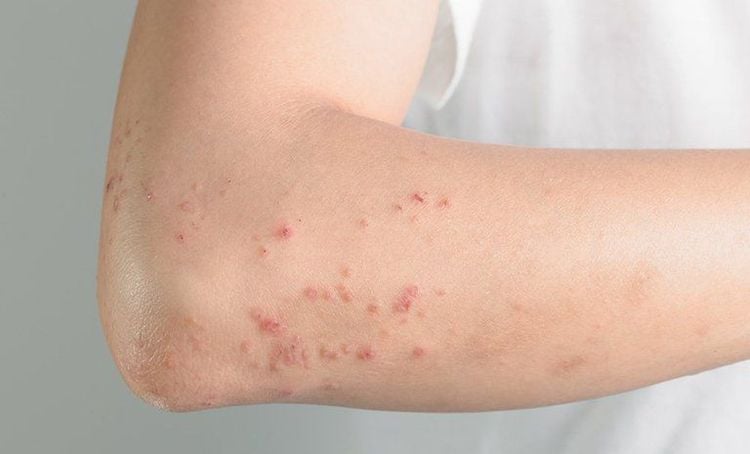
Người bệnh có thể gặp tình trạng kích ứng da khi sử dụng thuốc
4. Caution warning
Allergies : Before using hydrocortisone, tell your doctor or pharmacist if you are allergic to this or other corticosteroids (eg, prednisone, triamcinolone); or any other type of allergy. Topical antifungal medications may contain inactive ingredients and cause allergic reactions or other problems. Consult your pharmacist for more details. Gynecological diseases: If you have genital itching accompanied by vaginal discharge, consult your doctor before using this product. Infection: Do not use topical medication for itchy skin if there is an infection or pain in the area to be treated to avoid making the skin infection worse. Tell your doctor right away if redness, swelling, or irritation does not improve. Children: Children may be more sensitive to the effects of too much corticosteroid medication. Consult your doctor for more details. Pregnancy: During pregnancy, this medicine should be used only when clearly needed. Pregnant women should discuss the risks and benefits carefully with their doctor. Breast-feeding : It is not known whether this medicine passes into breast milk when applied to the skin. So consult your doctor before taking this medicine if you are breast-feeding. Also, if you have other health problems, consult your doctor or pharmacist before using this product.
5. Drug interactions
Make a list of all the medicines you are taking for your doctor and pharmacist to see. If prescribed, tell your doctor or pharmacist of all medicines (both prescription and over-the-counter) and herbs you have been taking.
The doctor or pharmacist may be aware of the type of possible interaction and is under monitoring. Do not start, stop or change the dose of any medicine without consulting your doctor or pharmacist.
6. Overdose and missed dose
Topical antifungal medications can be harmful if swallowed. If you have overdosed and have severe symptoms - like fainting or trouble breathing, call 911 or a poison control center right away.
If you forget to apply the medicine, use it as soon as you remember. In case it is almost time for the next application, skip the missed dose. Use your next dose at the usual time. Do not double the amount used to make up for the missed dose.
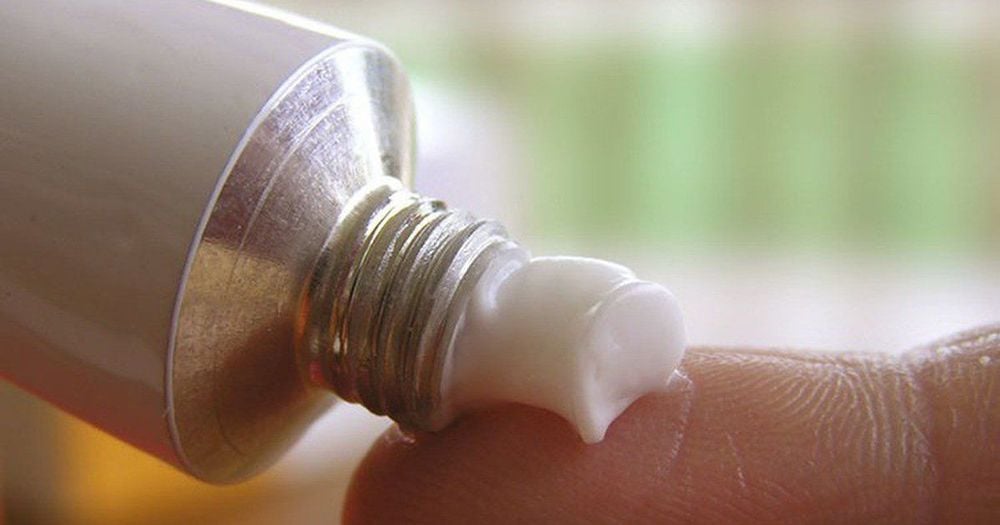
Người bệnh nên dùng thuốc trong thời gian sớm nhất sau khi đã quên bôi thuốc
7. Note
Do not arbitrarily share topical medications for itching with others. If prescribed by your doctor, use this medication only to treat your current condition. After you have recovered, do not continue to use the medicine for other skin problems you have in the future, unless directed to do so by your doctor. Make sure to have regular check-ups and tests.
8. Preservation
Refer to the storage information printed on the packaging, which usually includes: Protect from light and moisture; Do not put in the bathroom; Keep all medicinal products out of reach of children and pets.
Do not flush medicine down the toilet or down the drain. Dispose of the product properly when it has expired or is no longer needed. Consult a pharmacist for more details on how to safely dispose of the product.
Please dial HOTLINE for more information or register for an appointment HERE. Download MyVinmec app to make appointments faster and to manage your bookings easily.
References: Mayoclinic.org, webmd.com, healthline.com



